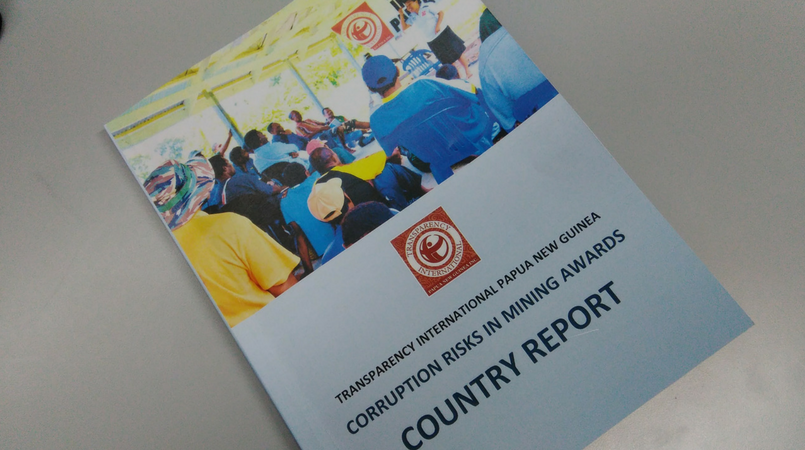
A Transparency International PNG Country Report has revealed high corruption risks in several areas of the Mining Licences Process.
The report, which was launched today, has highlighted key areas that need to be addressed urgently to minimise the risk of corruption.
The report comes from TIPNG’s participation in a global research initiative called the Mining for Sustainable Development (M4SD) program.
TIPNG says the need to identify risks in the mining licence process is because the awards process is the start of the mining value chain and any effects of corruption there will be passed along, eventually impacting the country’s sustainable development.
TIPNG Chairman, Lawrence Stephens, said regulatory systems should be improved so that the wealth generated from the mining sector should be used for the welfare of Papua New Guinea.
“Through efforts like this that we can start to make a difference, start to assist people whose job it is to try to make sure all the people of this country benefit,” he said.
The high risk areas highlighted in the report include cross-institutional capacity; human resources of regulatory agencies; coherence of feasibility studies and MOAs, lack of a national geospatial agency; consultation, representative bodies and associated business entities; lack of CSR reporting requirements; and risks concerning women, vulnerable persons and marginalised groups.
Present at the launch was Mineral Resources Authority Managing Director, Phillip Samar, who said some of the issues highlighted are not new to them but are ongoing.
However, he said the MRA will continue to have dialogue and work with TIPNG to address the issues raised.
